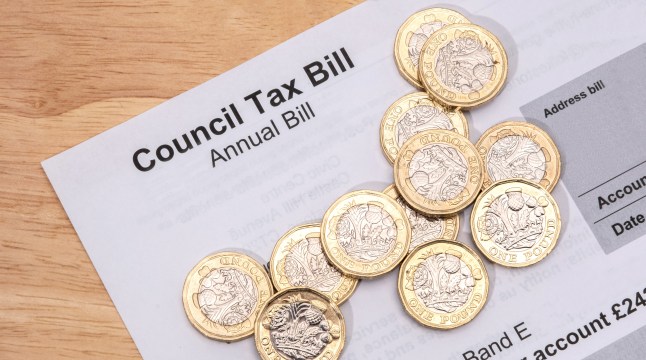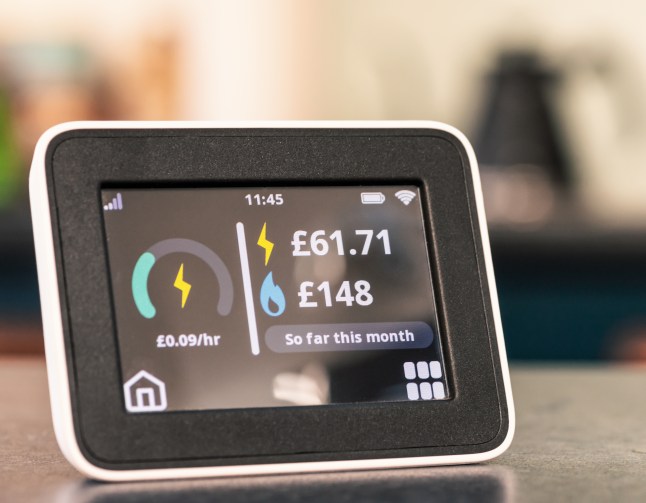

Brits are being urged to check the terms of their phone and broadband contracts and ensure they’re not overpaying council tax with bills rising from April 1.
This year ‘Awful April’ looks likely to be particularly painful, with nine in 10 councils taking the opportunity to raise taxes by the maximum allowed amount, and water bills rising by as much as 47%.
Although you can’t escape all hikes, with the right know-how, you can potentially save hundreds of pounds.
Below, we talk you through how to hack household bills as businesses and councils put up their prices to compensate for inflation and rising costs.
1. Council tax

Most of us will pay 5% more on our council tax from April – that’s an average of about an extra £109 a year for a Band D household – but a few unlucky folk will find the bill is much higher.
That’s because their council has been given permission to raise even more from customers because they are in dire financial straits.
Councils that can do this include Bradford, which will put up council tax by 10%, and the London borough of Newham, whose residents will pay 9% more.
Is there anything I can do about it?
Check you are not overpaying. There are a few reasons why council tax might be reduced. Full-time students, single people, carers and those with certain diagnoses are entitled to a discount, as are some people on low incomes, so check your council website to see if you are eligible.
You may also be able to apply to reduce your council tax band. The amount you pay in tax depends on the valuation of your house in 1991, and many properties have changed since then. There are more details on how to challenge the banding at gov.uk, though be aware that it comes with the risk you’ll go up a band, too!
2. Energy bills

The government cap on energy prices rises from April 1 to 6.4%, so if you’re on a capped energy tariff, the gas and electricity you are using will cost more. Energy regulator Ofgem says this will cost the average household £111 a year if prices remain at the new level. The cap itself only runs for three months, after which prices may rise or fall again.
Is there anything I can do about it?
If you are on a fixed-rate tariff, you won’t pay any more for your energy until that rate comes to an end.
If you aren’t, and your energy is on a capped tariff, now might be a good time to see if you can save by switching. Use comparison sites such as Uswitch, Moneysupermarket or Comparethe market to find cheaper deals.
Taking steps to reduce your energy bills will also pay dividends, although the good news is that the latest hike is coming in as the weather gets warmer and energy demand reduces.
Fiona Peake, consumer finance expert at Ocean Finance, suggests the following tweaks to bring bills down further. ‘Leaving appliances on standby overnight can add up to £100 a year to your bills. Switching everything off at the socket (except essentials like your fridge) can be an easy way to save,’ she says. ‘Another simple fix is lowering your boiler’s flow temperature to 60C. It won’t impact the warmth of your home but it could save you another £100 a year.’
3. Water bills

Water bills alone are set to increase by an average of £123 a year from April 1, a 26% increase, according to the Consumer Council for Water (CCW), which represents householders. Depending on where you live, some people will face even bigger rises, as water companies are raising their bills by different amounts.
Some of the highest rises include Southern Water, which is increasing bills by 47%, South West Water (32%), Thames Water (31%) and Yorkshire Water (29%).
Is there anything I can do about it?
Andy White, from the CCW, says that customers who are finding water bills difficult to pay should check whether they are eligible for a ‘social tariff’.
If you are eligible because you have a low income, you could save an average of £160 a year, while those with medical conditions that mean they use a lot of water could be eligible for WaterSure tariffs, with an average saving of £286 a year. Two in five households in the UK don’t have a meter and some would be better off if they switched.
You can try the CCW water meter calculator at ccw.org.uk to see if that could be you. You can also, unless you live in an area where water meters are compulsory, switch back again after two years if you are unhappy with it.
‘I saved £175 by switching to a water meter’

Sylvia Tillmann, from Ramsgate in Kent, is saving over £175 a year now she’s switched her water to a meter. Her bill used to be £300 a year, and now it is just under £125.
The 58-year-old lives in a one-bedroom flat, but still saved on her Southern Water bill by switching to a meter.
‘I’m not wasteful, very environmentally conscious, and take short showers rather than long ones,’ she says. ‘I only use the washing machine and dishwasher when it’s really full, so the meter hasn’t changed my behaviour at all, just saved me money.’
Sylvia says that she was prompted to get a meter by a friend who had also saved money, and although she had to wait a while for an engineer to come and fit it, the process was otherwise straightforward.
‘To start with, I was checking the meter all the time to see if it moved, and it only moved a little bit with each shower or use of the dishwasher,’ she says. ‘I couldn’t believe my savings, and I’d advise anyone who is careful with water like me to do this.’
4. Broadband and mobile bills

Broadband and mobile phone companies are allowed to put up your bills by an amount linked to inflation if this was in your contract when you signed up. Fiona, at Ocean Finance, says this could push bills up by six to 7.5%, adding £3-£5 per month to household expenses.
Is there anything I can do about it?
If you are out of contract, you can leave and get a better deal, or haggle with your current provider for a cheaper price by threatening to leave. Check out comparison sites such as Uswitch or Moneysupermarket for deals that might work for you.
If you’re in contract, chances are you’ll have to pay to leave, but do check whether they will waive exit penalties when prices rise. If the penalties are steep, make a calendar note of when the contract ends and switch as quickly as you can.
How to haggle your phone or broadband bill
Metro’s money expert Andy Webb, who runs financial blog Be Clever With Your Cash, shares his top tips to haggle down your phone or broadband bill.
‘If you’re out of contract, or soon will be, then this is the time to either find a new provider that charges less or haggle a better deal,’ he says.
Andy advises playing hardball with your phone provider.
‘Just tell the person you want to leave, and make sure you’re put through to the disconnection team as they have the most power when cutting prices,’ he explains. ‘You can even call their bluff and trigger the cancellation. Often they’ll call back with an even better deal. If they don’t you can always say you’ve changed your mind and accept the previous offer.’
When it comes to broadband, if you’re in contract, there’s not much you can do but wait to find out the increase, says Andy – with a few exceptions.
‘First, if you’re a Sky broadband or O2 mobile customer, these two companies will be charging more from April 1, but there are loopholes that mean you can cancel your contract. With Sky phone and broadband, though sadly not TV, it’s because Sky doesn’t have this increase baked into the contracts, so it’s a change in the terms you agreed to,’ he explains.
‘The opportunity to end an O2 contract early hasn’t been widely publicised, though the email I received also talked about other contract changes, such as fair usage on worldwide roaming. Whatever the reason, it still offers the opportunity to quit.
‘But you need to act fast. You’ve got 30 days from them telling you of the changes to tell them you want to leave (or use it as a bargaining chip). Since you might have had the communication in early February, the clock could already be ticking.
‘Another option worth exploring to beat the increases is if your internet speed hasn’t been what’s promised, and they’ve not been able to fix it in 30 days, then you can also cancel your contracts early.’
5. Car tax

How much more will I pay?
For most of us, the increase in car tax will be a relatively manageable £5 a year, to £195. For those with electric vehicles though, the increase will be high. These vehicles have been exempt from the tax but now will pay £10 for the first year before moving to the standard car tax rate.
Is there anything I can do about it?
Expensive vehicles attract more car tax, so ensuring you don’t have a vehicle with a ‘list price’ of over £40,000 will save you money. Otherwise you only get out of paying car tax if your car is off-road and declared as such, or is over 40 years old.
6. TV Licence

How much more will I pay?
The price for a standard colour TV licence is rising by £5 to £174.50.
Is there anything I can do about it?
If you want to watch live TV or BBC iPlayer then you will need a licence. If you watch only other catch-up services, you won’t, and can save the full amount. You can apply to cancel your licence online if this is the case at tvlicensing.co.uk. You can also fill out a declaration on the same site saying you don’t need a licence, to prevent TV Licensing pursuing you for the cash.
Beware, though, if you don’t pay and are discovered to be watching live TV or iPlayer, you could face a £1,000 fine. Otherwise if you’re over 75 and receive the pension credit benefit you’ll get a free TV licence, while those who are blind or significantly sight-impaired will receive a 50% discount.
Average annual extra cost per household
Energy: £111
Council tax: £109
Water: £123
Broadband and mobile: £50.40
Car tax: £5
TV Licence: £5
TOTAL: £403.40
Source: Hargreaves Lansdown
Rosie Murray-West is Metro’s personal finance specialist.
If you want more tips and tricks on saving money, as well as chat about cash and alerts on deals and discounts, join our Facebook Group, Money Pot.
















































